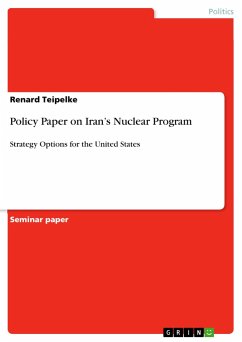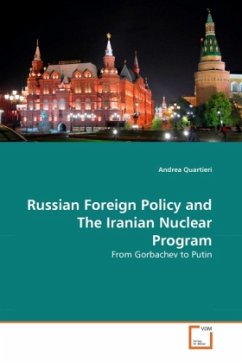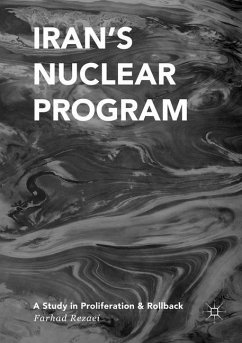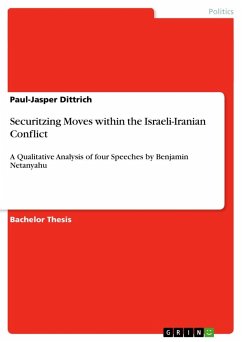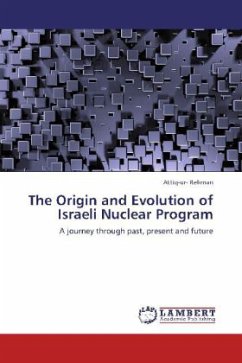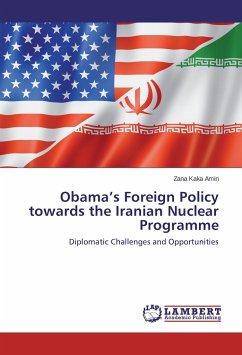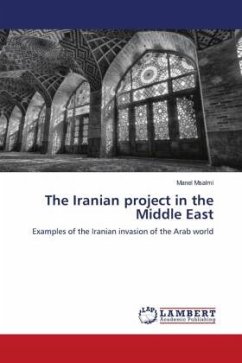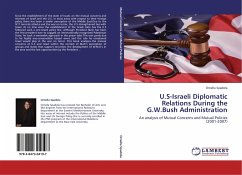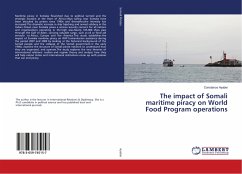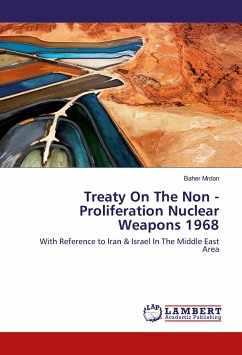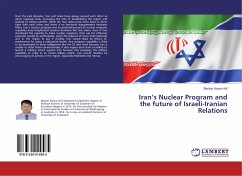
Iran's Nuclear Program and the future of Israeli-Iranian Relations
Versandkostenfrei!
Versandfertig in 6-10 Tagen
24,99 €
inkl. MwSt.

PAYBACK Punkte
12 °P sammeln!
Over the past decades, Iran and Israel have always viewed each other as direct regional rivals, increasing the risks of destabilising the region and leading to military conflict. While the two states have never been in direct fight with each other and there is no territorial disagreement between them, Iran's nuclear program and its potential pursuit of nuclear weapons capability have heightened tensions between the two states. Even if Iran developed the capacity to make nuclear weapons, their use for offensive purposes would be unthinkable, given the balance of force internationally and in the...
Over the past decades, Iran and Israel have always viewed each other as direct regional rivals, increasing the risks of destabilising the region and leading to military conflict. While the two states have never been in direct fight with each other and there is no territorial disagreement between them, Iran's nuclear program and its potential pursuit of nuclear weapons capability have heightened tensions between the two states. Even if Iran developed the capacity to make nuclear weapons, their use for offensive purposes would be unthinkable, given the balance of force internationally and in the region. To put it crudely, Iran would likely be blown to smithereens for using a radioactive bomb. Any weapons capability is likely to be developed to deter belligerents like the US and Israel because Iran is unable to deter them conventionally. It also argues that Israel is unlikely to launch a military attack against Iran because Iran possesses the military capability to reply to an Israeli military attack. Iran would retaliate by encouraging its proxies in the region, especially Hezbollah and Hamas.



